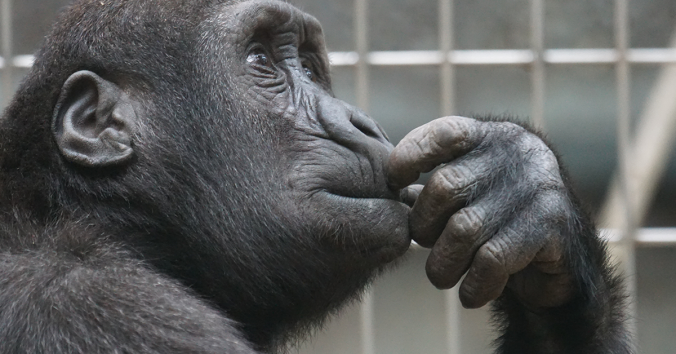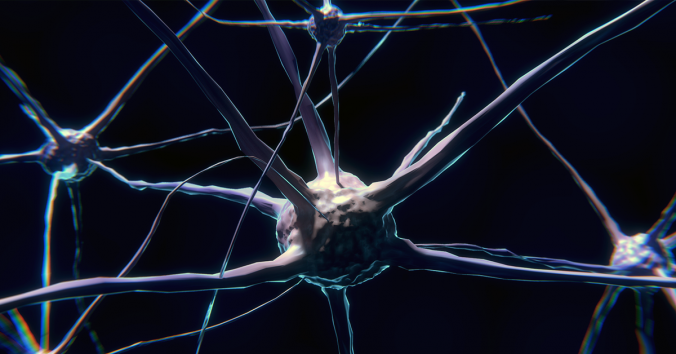Have you seen small children make repeated attempts to squeeze a square object through a round hole (plastic toy for the little ones)? You get puzzled: Do they not see that it is impossible? The object and the hole have different shapes!
Sometimes adults are just as puzzling. Our intellect does not always fit reality. Yet, we force our thoughts onto reality, even when they have different shapes. Maybe we are extra stubborn precisely when it is not possible. This post is about such a case.
Herb Terrace is known as the psychologist who proved that apes cannot learn language. He himself tried to teach sign language to the chimpanzee Nim, but failed according to his own judgement. When Terrace took a closer look at the videotapes, where Nim interacted with his human sign-language teachers, he saw how Nim merely imitated the teachers’ signs, to get his reward.
I recently read a blog post by Terrace where he not only repeats the claim that his research demonstrates that apes cannot learn language. The strange thing is that he also criticizes his own research severely. He writes that he used the wrong method with Nim, namely, that of giving him rewards when the teacher judged that he made the right signs. The reasoning becomes even more puzzling when Terrace writes that not even a human child could learn language with such a method.
To me, this is as puzzling as a child’s insistence on squeezing a square object through a round hole. If Terrace used the wrong method, which would not work even on a human child, then how can he conclude that Project Nim demonstrates that apes cannot learn language? Nevertheless, he insists on reasoning that way, without feeling that he contradicts himself. Nor does anyone who read him seem to experience any contradiction. Why?
Perhaps because most of us think that humans cannot teach animals anything at all, unless we train them with rewards. Therefore, since Nim did not learn language with this training method, apes cannot learn language. Better methods do not work on animals, we think. If Terrace failed, then everyone must fail, we think.
However, one researcher actually did try a better method in ape language research. She used an approach to young apes that works with human children. She stopped training the apes via a system of rewards. She lived with the apes, as a parent with her children. And it succeeded!
Terrace almost never mentions the name of the successful ape language researcher. After all, she used a method that is impossible with animals: she did not train them. Therefore, she cannot have succeeded, we think.
I can tell you that the name of the successful researcher is Sue Savage-Rumbaugh. To see a round reality beyond a square thinking, we need to rethink our thought pattern. If you want to read a book that tries to do such rethinking about apes, humans and language, I recommend a philosophical self-critique that I wrote with Savage-Rumbaugh and her colleague William Fields.
To philosophize is to learn to stop imposing our insane thoughts on reality. Then we finally see reality as it is.

Written by…
Pär Segerdahl, Associate Professor at the Centre for Research Ethics & Bioethics and editor of the Ethics Blog.
Segerdahl, P., Fields, W. & Savage-Rumbaugh, S. 2005. Kanzi’s Primal Language. The Cultural Initiation of Primates into Language. Palgrave Macmillan.
Understanding enculturated apes






Recent Comments